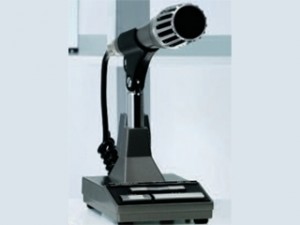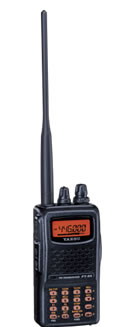RMRL REPEATER USER GUIDELINES
The Rocky Mountain Radio League, Inc. (RMRL) owns and operates a number of amateur repeater systems near Denver that serve the Front Range. Since RMRL is a large organization, we have this set of guidelines for use of the repeaters that reflect the desires of a majority of the members. These are not intended to unreasonably restrict your operation, but rather to help ensure a pleasant operating environment is maintained for all. In addition, you may want to see How to sound like a pro when operating on a repeater.
- During times of peak use and inclement weather, please keep transmissions short on all repeaters and pause long enough between them to allow emergency traffic to break in. If possible, use a simplex frequency rather than one of the repeaters.
- Please be courteous in your use of the repeaters. Keep conversations to a length that will allow others to enjoy the machines too. Do not break into a QSO unless you are certain you will be welcomed and you have something to add to the conversation.
- Please use common sense and good taste during QSOs. Do not use profanity or make suggestive or off-color remarks or jokes. Likewise, conversations of a very trivial, personal, critical, or negative nature are inappropriate. Remember that many individuals—including non-hams—may be listening, so please do your part to leave a good impression of the Amateur Service and RMRL with our audience.
- Please keep testing on repeater frequencies to a minimum. If you must test on the machines, be certain to identify legally.
- Exchange of formal messages on the repeaters is acceptable and encouraged. On the other hand, one-way traffic (i.e., repeater to simplex) is discouraged because it needlessly ties up the machine. Remember, one way repeater messages (from one station to a non-responding or unlicensed station) are illegal. Simplex operation on the repeater output frequencies should also be avoided since it prevents others from using the machines.
- Visitors are welcome on the repeaters and the autopatches. Please assist any visiting amateur who requests help.
- The repeaters have timeout circuits that automatically shut the transmitters down in the event there is a steady carrier on the input frequency for longer than 2 minutes. To reset the timer, it is only necessary to release your microphone button for an instant. You don’t have to let the repeater transmitter drop.
- Please identify clearly at the beginning and end of each conversation, as well as every 10 minutes during the conversation if it exceeds 10 minutes in length. If breaks between exchanges exceed a minute in length, please treat the next transmission as the beginning of a new conversation (ie, identify). These guidelines differ somewhat from FCC identification requirements, but work well for our large number of users.
- The repeater transmitters delay one-half second before coming up when a signal breaks the squelch of the repeater receiver. This reduces random key-ups, but may also result in the first syllable or two being cut off of your transmission if you key your transmitter and talk immediately. To avoid this, key up and wait an instant before you talk. If your radio has subaudible tone (CTCSS) encode capability, you can bypass the delay by using a frequency of 103.5 Hz. Using CTCSS will also enable you to put a more reliable signal into the repeater under marginal conditions.
- The repeaters may be used for events or other special communication needs. This should be arranged in advance with one of the club’s officers.
Please read the following Repeater Tips from the ARRL. They offer other suggestions for proper and courteous repeater operation.
DOs
- Do keep all transmissions short. Emergencies don’t wait for monologues to be finished. If you want to hear your own voice, what you want is a tape recorder, not an FM rig.
- Do think before you transmit. If you can’t think of anything worth saying, don’t say anything.
- Do be courteous. A repeater is like a telephone party line, and requires the same kind of cooperation in its use.
- Do pause a couple of seconds between exchanges. Someone with a high priority need for the repeater may want to break in.
- Do use simplex whenever possible. Leave the repeaters available for those who need them.
- Do support your local repeater club. Maintaining a good machine is an expensive and time-consuming undertaking, and you should do your share.
DON’Ts
- Don’t monopolize a repeater. The best repeater users are the ones who do a lot of listening, and little transmitting.
- Don’t forget that what you say over a repeater can be heard over thousands of square miles — by anyone with an inexpensive scanner or public service band monitor. These people are potential hams; if they like what they hear on the air, they will want to get licenses and join us. Don’t leave them with a bad impression of our hobby by making thoughtless or off-color remarks.
- Don’t break into a contact unless you have something to add and you’re sure you’ll be welcomed. Interrupting is no more polite on the air than it is in person.
- Don’t try to prove what a great operator you are by criticizing the operating techniques of others on the air. Instead, set an example that others will be proud to follow.
- Don’t forget that amateur radio is allocated frequencies because it is a service, not just a hobby. Don’t neglect the public service aspects of VHF/UHF FM communication, such as accident reporting, emergency preparedness, etc.
- Don’t abuse autopatch privileges. Business messages are not permitted in the Amateur Service. Don’t force a control operator to terminate your call in order to avoid a rules violation.

